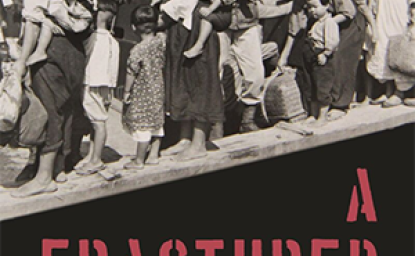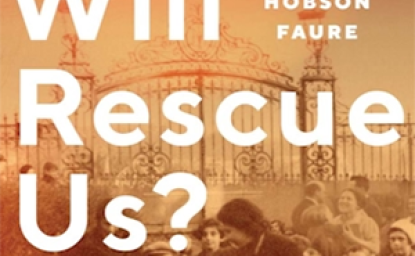Asia-Pacific Nuclear History Institute
The Wilson Center's Nuclear Proliferation International History Project (NPIHP), in partnership with Kyungnam University's Institute for Far Eastern Affairs (IFES), is pleased to announce the convening of the first Asia-Pacific Nuclear History Institute. The Institute is being organized in Paju, South Korea, from November 5-12, 2016.
Course Description
The continued proliferation of nuclear weapons is one of the most pressing security issues of our time. A deeper knowledge of the past can improve how we approach the nuclear challenges of today and tomorrow.
The Asia-Pacific Nuclear History Institute (APNHI) is an intensive, one-week immersion course in the international history of nuclear weapons in the Asia-Pacific region. This course, led by world-class historians and leading experts, will provide in-depth instruction and discussion on the evolution of nuclear technology, the origins and development of deterrence and extended deterrence theory, regional nonproliferation issues, and nuclear strategy.
The Asia-Pacific Nuclear History Institute is an initiative of the Nuclear Proliferation International History Project (NPIHP), a global network of individuals and institutions engaged in the study of international nuclear history through archival documents, oral history interviews, and other empirical sources.
Course Objectives
• Equip students with a broad knowledge base about the history of nuclear weapons in the Asia-Pacific region as well as global nuclear issues;
• Familiarize students with key concepts in nuclear history and nuclear security;
• Immerse and train students in international history methodology;
• Cultivate student skills for archival research and evaluating primary source materials;
• Expose young researchers to promising new research areas and identify fruitful areas of collaboration;
• Expand the NPIHP network of individuals committed to studying nuclear history on the basis of newly accessible archival sources and oral histories
Support for APNHI
The Asia Pacific Nuclear History Institute was made possible through the generous support and funding of the YoungOne Corporation. APNHI has also been generously supported by the Carnegie Corporation of New York, Korean Air, and the Korea Foundation.
APNHI Student Participants
Following a competitive application process, 15 students were selected for admission to the Asia-Pacific Nuclear History Instiute. The class of 2016 includes:
Beenish Altaf is a Senior Research Associate at Strategic Vision Institute, an Islamabad based think tank. Her areas of research include nuclear nonproliferation and strategic issues of South Asia. She is a graduate of Defence and Diplomatic Studies from Fatima Jinnah Women University. Furthermore, she regularly contributes to national and international dailies.
Debak Das is pursuing his Ph.D. in Political Science at the Department of Government, Cornell University. He completed his M.Phil. in Diplomacy and Disarmament, and his M.A. in International Relations at the Jawaharlal Nehru University, New Delhi. He has formerly held research positions at Institute of Peace and Conflict Studies and Centre for Dialogue and Reconciliation, New Delhi. His research interests include advancements in military technology, ballistic missile defense, and strategic and nuclear decision-making in South Asia.
Yeon-jung Ji is a Stanton Nuclear Security Post-doctoral Fellow at Belfer Center for Science and International Affairs, Harvard. She works on India's nuclear policy and program.
Tianjiao Jiang is a Ph.D. candidate at the Center for American Studies, Fudan University. He is also a member of International Student/Young Pugwash (ISYP), CTBT Youth Group and Union of Concerned Scientists (UCS) Summer Symposium. His research focuses on nonproliferation and regional security in Northeast Asia.
Rustam Khan is an M.Phil. student in history at the University of Hong Kong. He is currently studying the foreign and domestic policies of the USSR in Northeast Asia. He is particularly interested in Soviet cross-border exchange and interaction in its frontier societies with close neighbors such as the People's Republic of China. Among others, he is looking at what role and influence of technological development had on political inter-state relations. He currently holds a BA and MA in History from the University of Leuven in Belgium.
Alex Lee is a Ph.D. candidate in political science at University of California, Irvine. He specializes in US-East Asian, especially in US-ROK and US-Japan alliance, security relations, Korean Peninsula and nuclear non-proliferation. He was 2015-2016 Fulbright Scholar in South Korea conducting an archival research and in-depth interviews. He is currently 2016-2017 Japanese Studies Doctoral Fellow at Tokyo University where he is conducting archival research and in-depth interviews.
Clarissa Ai Ling Lee is postdoctoral Research Fellow at the National University of Malaysia, based at the Institute for Malaysian and International Studies, working in the field of Science and Technology Studies. For her doctoral dissertation, Clarissa considered the socio-politics and culture of making novel discoveries in the physical sciences by looking at the discovery of the Higgs Boson, while also considering relevant science fictional works that help underpin the climate of discovery. Now, she is working on developing the history of physical sciences in Southeast Asia, with particular attention to Malaysia and Singapore, from a trans-national perspective.
James Lee is a Ph.D. student in the Department of Political Science at the University of California, Los Angeles. His research interests include diplomacy, the international relations of East Asia, the influence of status on foreign policy decision-making, nuclear security studies, and qualitative methods. His research on the rise of China has recently been published in Asian Security. Prior to coming to UCLA, he completed his B.A. in East Asian Studies at Stanford University.
Dani Nedal is a Ph.D. Candidate in Political Science (International Relations) at Georgetown University and Predoctoral Fellow at Yale University. His research focuses on international security; his dissertation explores the relationship between urban geography and nuclear doctrine and strategy.
Pratama Yudha Pradheksa is a graduate student in Science and Technology in Society (STS) at Virginia Tech (USA) with Fulbright scholarship. Pratama received his BA in Sociology from the University of Brawijaya (Indonesia), where he also works as a lecturer. He is interested in the history of technology, nuclear technology policy, risk, and knowledge. His current research project looks at the politics of risk, nationalism, and expertise on the Fatwa to Muria’s nuclear power plant in Indonesia.
Hyunji Rim is a Ph.D. candidate in Asia Studies at Johns Hopkins University School of Advanced International Studies. Her research interests include security dynamics and nuclear politics in East Asia. She holds MA in International Peace and Security from Korea University, BA in French Language & Literature and Korean Studies from Ewha Woman’s University.
Sayuri Romei is a Ph.D. candidate in international relations at Roma Tre University in Rome, Italy. She holds a BA in English Language and Literature from the University of Sorbonne Nouvelle Paris III, a BA in international relations from the University of Roma La Sapienza, and an MA in international relations from Roma Tre University. Her dissertation focuses on the evolution of Japanese élites’ nuclear mentality in the postwar era, looking at its ambivalent nuclear history and exploring how the country’s nuclear latency was seen by the United States throughout the Cold War. Sayuri also works as an illustrator, she has illustrated three books published in France, a novel in Japan, and two children's books in the United States.
Selim Sazak is a Ph.D. candidate at Brown University's Department of Political Science. He is also a non-resident fellow in the foreign policy program of The Century Foundation, and at MEF University’s Center for Strategic Research and International Security Studies. Previously, he worked as an assistant to Paolo Cotta-Ramusino, Secretary-General of Pugwash Conferences, and a research associate at NATO Center of Excellence—Defence Against Terrorism. Sazak regularly contributes to newspapers and journals including Foreign Affairs, Washington Post, and Times.
Daekwon Son is a Ph.D student in Peking University, China, where he received his M.A. in International Relations. He received his B.A. in Sociology and International Studies from Korea University in South Korea. His research interests include nuclear extended deterrence, ballistic missile defense, and nuclear proliferation with a special focus on the East Asian region.
Vaishnavi Tannir is currently pursuing her Ph.D. in the field of International Relations at Jawaharlal Nehru University, and is specifically interested in nuclear issues and history. As a result, she has chosen to work on “The Impact of Region on Nuclear Behaviour of States: A Comparative Study of the Argentina-Brazil and India-Pakistan Dyads.” She has worked on issues of international security and foreign policy in the past, and hopes to be able to contribute to policy formulation and analysis in the future, in addition to a career in academics and research.
APNHI Faculty
The Asia-Pacific Nuclear History Institute is led by by world-class historians and leading experts. The faculty for the 2016 program includes: Rabia Akhtar, Hyungsub Choi, Lyong Choi, Toshihiro Higuchi, David Holloway, Jihwan Hwang, Yogesh Joshi, Akira Kurosaki, Nicola Leveringhaus, Hsiao-ting Lin, Leopoldo Nuti, Christian Ostermann, Masakatsu Ota, James F. Person, Joseph Pilat, Elisabeth Roehrlich, Martin J. Sherwin, and Anna-Mart van Wyk.







